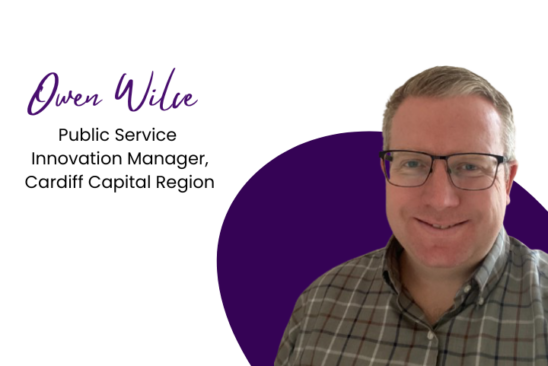Authors
10 years ago, I decided to embark on a journey to become a physiotherapist; to care for the community I lived in, and make a real difference. On reflection, this is some of the work I am most proud of; I was a frontline worker during the pandemic, helped patients affected by severe and rare neurological conditions, and developed policies to improve junior therapists’ introduction to physiotherapy.
People often ask why I stopped physiotherapy, the career that I loved. It wasn’t because of the pay or that the work was unrewarding; there were just so many things that I wanted to change, that I couldn’t at a clinical level. There isn’t the time.
Our clinical colleagues are under tremendous amounts of pressure. More and more patients require ongoing care as a result of the pandemic and our aging population. Despite this, we had an 8.4% vacancy rate in the NHS in England in September 2023.
Staff are looking after more patients, with more complex needs, than ever before. Their target is often to provide the minimum level of care rather than the high-quality care they want to deliver. In many cases, this pressure results in strike action. There is little, if any, time to reflect on current practice and make improvements.
I remember getting a call from a friend and previous colleague of mine late one evening who had been a management consultant. They knew that I had a passion to create change on a large scale, and discussed a job role being advertised in service improvement that could be a gateway into the world of consultancy.
My first reaction was, ‘they actually think I am capable of doing this role’. As health professionals, we have often studied for vocational degrees. There is a belief that this is what we are trained to do, and this is all we can do. But we have so much more to offer and a wealth of transferrable skills; from prioritisation, to working under pressure, and most importantly, understanding the health system first hand. We are not just ‘physiotherapists’ or ‘nurses’.
In this service improvement role, I learnt how to manage projects, speak with senior stakeholders, analyse large data sets and write business cases. But I wasn’t starting from scratch. I had developed so many skills from working as a physiotherapist. I then applied for a role at PPL. This was largely due to my passion being in service improvement and my NHS role becoming more operational in nature. I would say: ‘When my NHS role became more operational, I applied for a job at PPL where I could continue to pursue my passion for service improvement.’
Initially when I joined PPL, I felt a sense of imposter syndrome. This was absolutely not fuelled by my colleagues who were nothing but welcoming and positive. Everyone was excellent at their jobs and seemed to have more appropriate skills. There was an element of the unknown, and that every day looked slightly different; a contrast from the routine of a ward setting.
However, I realised after a month or so that I was bringing impact to my projects and a new perspective. My first project was looking at hospital discharge throughout an ICS. I was able to provide my non-clinical colleagues at PPL with insight they might not otherwise have had, and my organisation skills from running the physiotherapy service on the ward supported my project management. My empathy and understanding of what our clients are going through has enabled me to build positive and lasting relationships with various stakeholders.
My physiotherapy friends still say to me, ‘How did you get that job?’, ‘How do you know what to do?’, ‘I would never be capable of that’. Now sitting in a consultancy role, it feels like my duty to change this perception. It definitely isn’t for everyone and many of my physio friends will continue to progress in the clinical world and make a huge impact. However, there are several steps that management consultants or senior managers in the public sector can take to change the narrative around clinicians and service improvement:
- Encourage clinical colleagues to be part of the service improvement process as much as possible. Rather than bringing them in for clinical input alone, consider having representation at the start of a project. Not only will willing individuals provide that clinical insight, but their skills will likely enhance the overall project.
- Sometimes we see clinical colleagues not engaging in improvement work. Often, this is not because they don’t want change, but they just do not have capacity alongside providing patient care. If they want to get involved in developing a service, try to make this happen where possible; free up their time.
- Finally, try to give clinical colleagues the training to be able to support this type of work and confidence that they have these transferrable skills.
You may think that clinical colleagues cannot afford this time away from their patients, but what if this is the thing that makes the difference to a nurse staying in their post? Or highlights a risk at the start of a project rather than at the implementation phase? This feels worth it to me.





